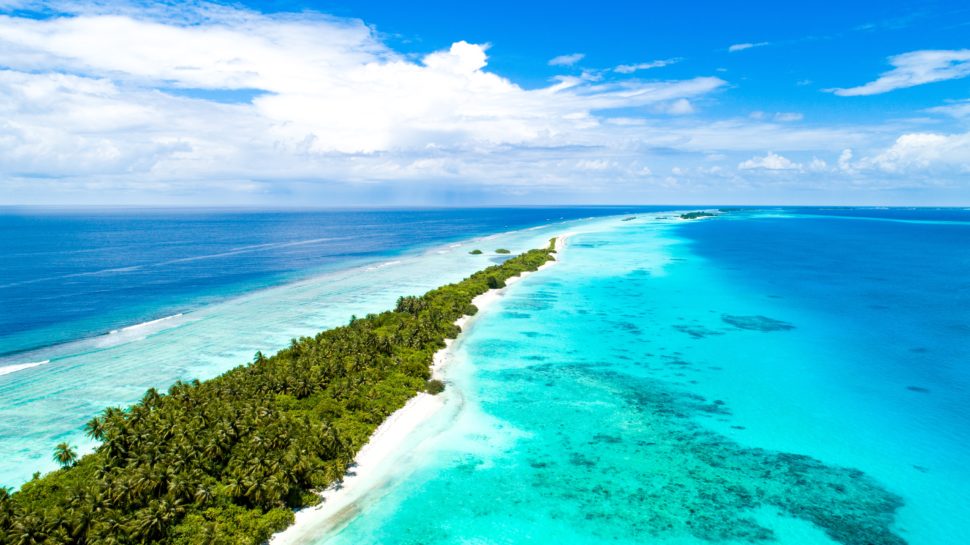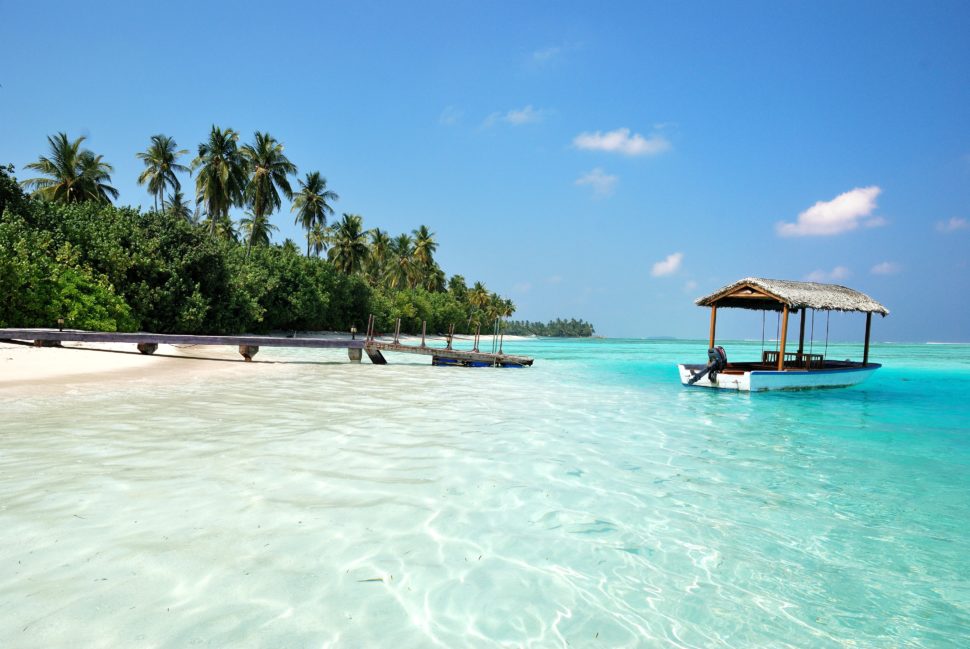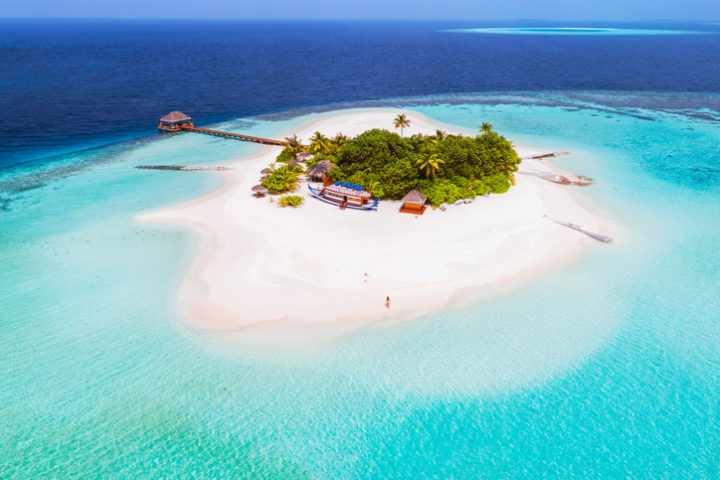The Maldives is an Asian country in the Indian Ocean best known for its blue lagoons, diverse reefs, and pristine sand beaches. If you are planning an upcoming trip to one of its hundreds of inhabited islands, its extremely important to note some relevant facts about its history, culture, and strict local laws.
1,200 Small Islands
The Maldives are made up of around small 1,190 islands throughout the Indian Ocean. In total the Maldives covers about 90,000 square kilometers making it the ninth smallest country in the world. Most international travelers will fly into the capital, Malé, which is only about an hour away from Sri Lanka.

Not All of the Islands are inhabited
Only about 200 of the nearly 1,200 islands are inhabited by people and year-round, permanent populations with another 200 that are resort islands. The uninhabited islands are often used for farmland or remote day trips for travelers. Another interesting fact is that all resorts occupy their own private island, making for a super tranquil and unique getaway.
RELATED: Maldives Takes Things Up A Notch With These Underwater Villas
You Do Not Need a Visa
It is not required to have a pre-arrival visa upon flying into the Maldives. However, you are required to have a return trip out of the island nation as well as a valid passport that has at least six months remaining before it expires.
Islam is the Official Religion
The Maldives is comprised of a 100 percent Muslim population. Pork and alcohol are forbidden on the local islands and throughout the day you may hear calls to prayer at the mosques. Be sure to be incredibly respectful of the local culture and withstand from wearing overly revealing clothing when traveling to the local islands and away from the resort locations.

Strict Laws
Since the Maldives is an Islamic nation, it is extremely important to know and respect the local culture and laws. There is no alcohol consumption, women are barred from wearing bathings suits or revealing clothing, no pork products are allowed, and any public displays of affection are against the law. All of these rules apply only to the local inhabited islands. The resort islands are much more lenient and don’t necessarily enforce these same restrictions.
RELATED: Guide: How To Visit The Maldives On A Budget
Peak Season is December to March
The monsoon season from about April to October can be a daunting experience for travelers, causing most people to travel to the islands during the high season – December to March. However, expect to see a surge in prices from flights to accommodations during this time as resorts take advantage of the popularity of the sunnier months. The tropical climate has year-year-round temperatures ranging from 28-30 degrees Celsius on most days.
Banned Items
Being an Islamic nation, you can not bring alcohol of any kind onto the island. If you do, expect to have to leave it at customs. If you plan on leaving your resort island, it’s also important to note that you can not buy or consume alcohol on any of the local inhabited islands.
